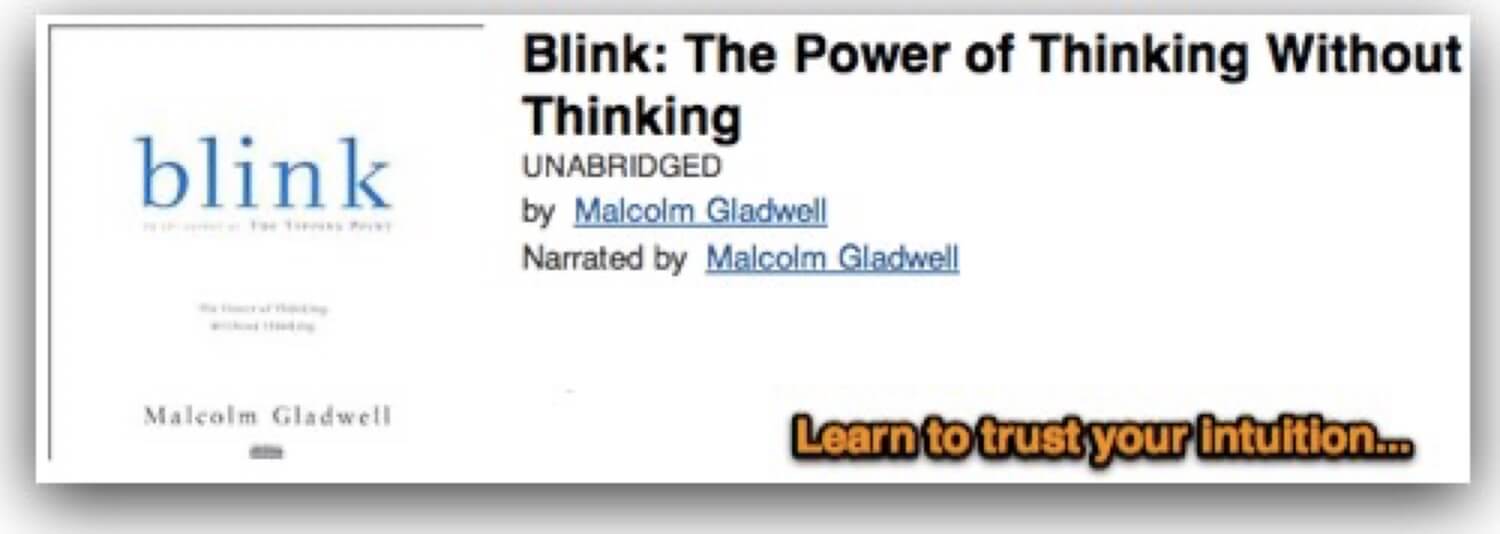Blink by Malcolm Gladwell - audiobook of the week
📖Books
This is my third book by Malcolm Gladwell - before this one I read “Outliers” and the “Tipping Point” (not reviewed on my blog yet) and I must say I liked this book less than the Outliers but it still gave me lots to think about. This author knows how to stir my mind.

The book is about making decisions in split-seconds and why too much information can very often be too much for us to make good calls.
Less is More - when you know less you can judge better
We live in the Information Society with too much information around us and one of the most important premises of this book is the fact that very often our judgments are clouded by “too much information”. When we “blink” and make decision in fraction of a second, we don’t have all this information at our disposal and therefore very often we can make better judgements. We just “feel” this is right and that is wrong… we just know it and we don’t need all the information in the world to prove our point. It works very often with me like this.
A great example was a case study when professionals where judging students’ characters based on how their dorm room looked. This helped them make their judgements without actually meeting the person live and being confused by this person’s behavior in a direct meeting. They were even more accurate as these students’ best friends.
Thin-slicing - a new name for “intuition” that is hard to explain
When we “blink” and make a decision quickly we choose what “feels right”. It’s our intuition, everything that we learned and that our subconscious mind was working on all these years we’re living on this planet (I talked about the power of the subconscious mind earlier). After we make this quick decision we very often don’t even know why we chose like that. We just know. We can’t explain it. We feel our decision but we don’t understand it.
The author calls these quick decisions “thin-slicing” - slicing the problem into a thin thingy and making the decision based on our initial reaction without analyzing it too much.
Fighting prejudice when thin-slicing.
There is a problem though. We might decide upon our prejudice. A good example is how we judge people. When we see a well dressed person we believe they are rich and successful… even though a guy standing next to them with old jeans and dirty t-shirt can be a multimillionaire who just got dirty. Our subconscious mind just learns from our peers and even though we may believe there is no difference between human races, what we’ve learned from other people can influence our decisions subconsciously.
A good example author gives is of a successful car salesman who never judges people by their looks, age or background. He genuinely assumes everyone who enters his car dealership has the money to buy a car and he wants to help them do it. He uses his thin-slicing skills to find what they feel, what they want from the car, what they care and don’t care about in a car. This is a great way of combating prejudice and putting “blinking” to good use.
Learning to thin-slice and observing how I react
This book made me aware of this subconscious part of our brain that helps us “blink” and whenever I “feel” a decision I try to stop and see why and how I got to this or that conclusion. It’s amazing to see how we react and to learn a lot more about how our brain works. And train it to thin-slice better. Recently we’ve been testing some new designs for our Nozbe desktop app and it was interesting to see how very often I knew one design felt right and other felt wrong.
I recommend this book (and I like that Malcolm himself is reading) and would encourage you to trust your intuition even more and remember that sometimes too much information is just that… too much.